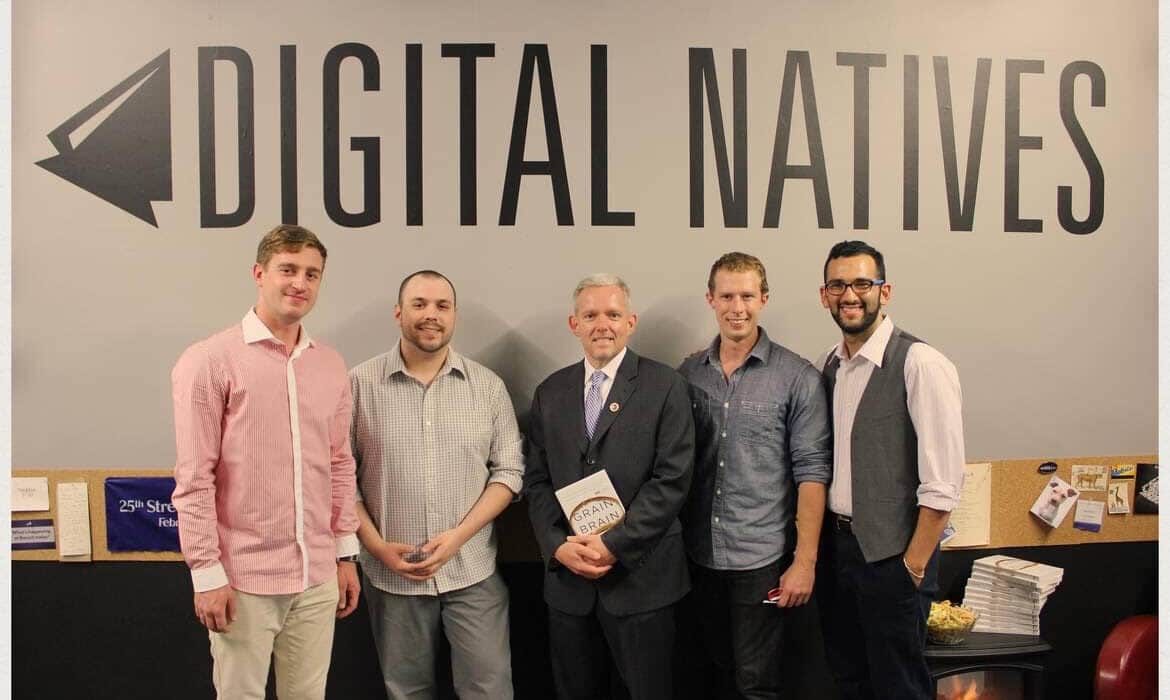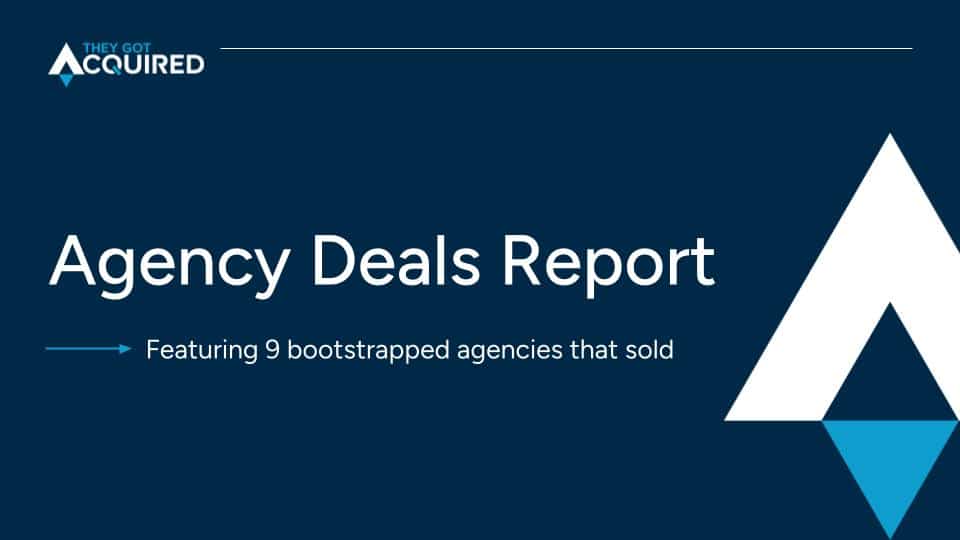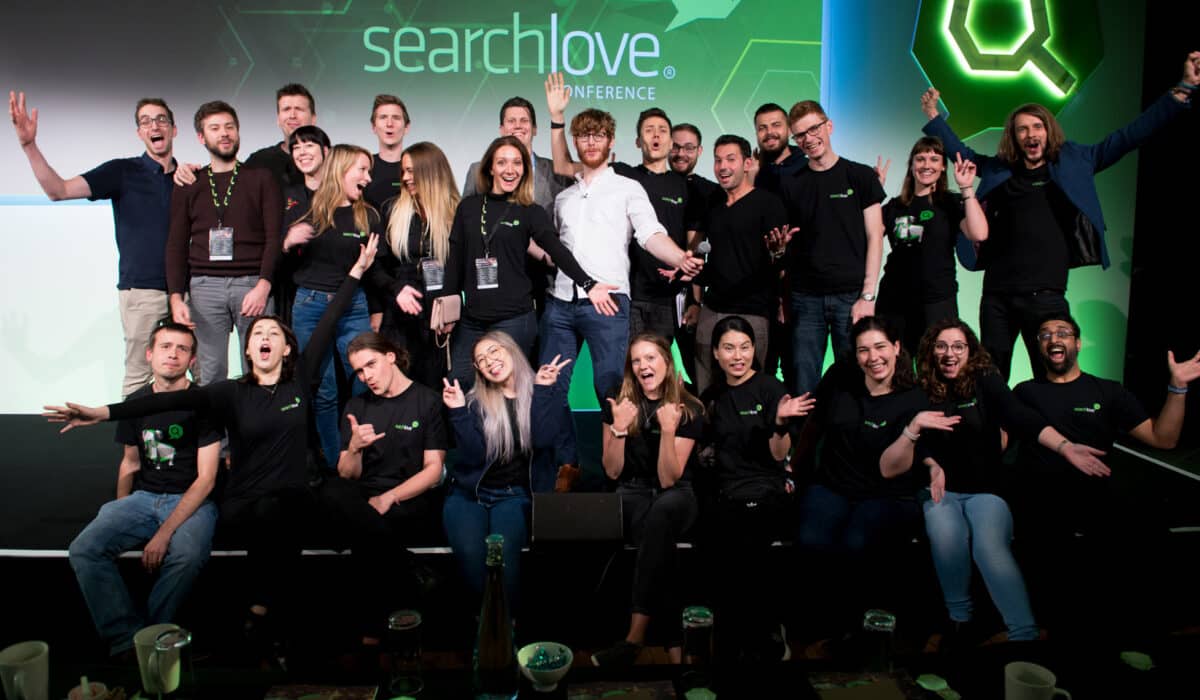Sometimes the parts are worth more than the whole.
That’s what happened with Digital Natives Group, a full-service marketing agency for branding, performance marketing, social media, and technical development.
In 2020, during the pandemic lockdowns, the founders took a hard look at their situation after a sale of the company fell through.
“It was painful, but even as it was happening, our founding team knew it was for the best,” co-founder Jonathan Jacobs said. “It was a blessing, because it forced us to take a look at our offering and realize we could achieve a better exit by ‘cleaving’ the business in two.”
And that’s exactly what they did. They split Digital Natives Group into two parts, selling each to different buyers — and ultimately earning 15% more than originally projected.
From $0 to 7 figures: Growing Digital Natives Group
Jacobs and three partners — John Botte, Ben Guttmann and Vlad Lackovic — founded Digital Natives Group in 2011. They grew the agency to 7 figures in annual revenue, according to Jacobs’ LinkedIn.
Their first clients included the local ice cream shop and camera store. They worked their way up to partnerships with the NFL, Comcast NBCUniversal, I Love NY and more, Guttmann shared on his website.
Digital Natives Group was the team behind the I Love NY app; the No. 1 best-selling book of 2014, “Grain Brain” by Dr. David Perlmutter; and more than 50 other best-selling book launches. The group also won Partner of the Year in 2018 from Sprout and collected more than 60 industry awards, including The Webby Awards, Shorty Awards and more.
Jacobs attributed many of the team’s early wins to a big move they made — from their former professor’s basement to a trendy industrial building in Long Island City in 2012.
Long Island City was an emerging tech hub, and, as a result, Digital Natives Group landed mentions in the Wall Street Journal and the New York Times and other major outlets. This led to a few inbound leads — and ultimately some big-time deals.
At sale, Digital Natives Group had grown to seven full-time employees and three contractors. They had 25 to 35 clients, and they invoiced a total of $1 million to $2 million each year, Jacobs told us.
4 founders, all on board to sell Digital Natives Group
In summer 2019, all four founders were approaching 30 years old and entering new life stages that included marriage and homeownership.
“The business was no longer serving our needs, and to pivot in a way that would allow us to break through our revenue ceiling would require a retrenchment none of us had the appetite for,” Jacobs said. “It was either buy each other out so someone could move it forward — or sell.”
Around October 2019, they agreed to sell, so they connected with Chimera Strategies, an M&A advisor for lower-to-middle-market companies. That December, Digital Natives Group hit the market.
To ensure he felt good about a deal, Jacobs made an exit wishlist. He shared the four major items in Entrepreneur’s Handbook:
- A senior level role
- Opportunities for personal development and growth
- Mentorship from senior leadership
- A landing spot for as many clients and employees as possible
“With this framework I was able to avoid wasting time on deals that were not going to be a fit for my needs,” he wrote. “Understanding your needs from any deal will help protect your time just the same.”
Splitting Digital Natives Group in 2 — and getting 15% more
After the initial buyer fell through, Digital Natives Group received a few inquiries, but “we just didn’t like the offers we were getting,” Jacobs told us. He strategized with Chimera Strategies and came up with a new plan: to split the agency into two and sell them separately.
Looking at the agency, it made sense. Really, it operated in two pieces, Jacobs explained. His three partners ran the web and mobile app development side of the operation while he ran the brand, marketing and strategy components. Because each side of the business involved two very different competencies and skill sets, they could market to the perfect buyers.
“Our brand and our marketing campaign piece didn’t really need the technical skills that certain agencies would have,” Jacobs said. “So we could sell the technical component to somebody who had that staff in house, and we could take the brand, marketing and strategy component and sell it to someone who had those skills and requirements.”
The split also helped each founder pursue exactly what they wanted from the deal. For example, Jacobs wanted to stay on and continue to build and grow post-sale, whereas his three partners were ready for a new pursuit.
Jacobs described the acquisitions as overall positive and smooth. The biggest task was dividing years of profit and loss statements, resources, and more into two entities. The main hiccups were instances where clients worked with both parts of the business. In those cases, they finished out the projects or dropped a portion of the retainer.
Both deals closed on July 1, 2021. The development portion of the group sold to digital marketing agency Counterintuity, and the digital/brand shop sold to Accelerate360, which helps retailers and brands grow through culture, content and commerce.
“The buyers were happy we split the way we were because they were really only interested in a specific component piece of the business that we were selling — they weren’t really looking to buy the whole shebang,” Jacobs said.
And it worked out well for Digital Natives Group, too. They sold for high 6 figures, a 15% greater value than their initial proposed deal. Plus, they secured 80% cash upfront, following a rule Jacobs encouraged all founders to follow — get as much cash as possible upfront.
Achieving a 100% employee and client retention rate post sale
At Accelerate360, Digital Natives Group was rolled up with two other independent agencies to form a new digital marketing agency called The Brand Highway.
Jacobs served as the VP of Digital Marketing, responsible for growing the new firm. He described the acquisition as “primarily one to acquire the portfolio and the people,” so all his previous employees and clients joined the new venture.
He attributes this win to, in part, the transparency he provided around the deal. He told his team three months before closing.
“It was a risky move, and one we tried to, quite frankly, avoid,” he wrote. “This worked for us because we knew there’d be no redundancies to deal with. While there was uncertainty about moving to a new employer, everyone knew there was a job for them if they wanted them.”
Even with the transparency, Jacobs said the biggest challenge of the whole sale was keeping everyone on board and “playing therapist to our people,” he told us, but he was happy to do it. He sent weekly team updates and held one-on-ones. These meetings continued even after the sale.
“We were merging new tech stacks, cultures and work styles — and those were all moments ripe for discord that we had to navigate,” he said.
Post acquisition: Just 10 months later, the company dissolved
Some of Jacobs’ biggest wins at Accelerate360 included doubling the headcount of the digital marketing team, landing a half-dozen New York Times bestsellers and driving 7 figures in value-add, he shared on LinkedIn.
But just 10 months after the acquisition, he got on a Zoom call with the VP of HR: The Brand Highway was shutting down.
“Our client contracts would be sunset, and the entire team would be let go… I would be let go,” Jacobs wrote. “With that, the business I had spent a decade building, and then sold, would be no more.”
When asked if he would do it all again, Jacobs had one word: Absolutely.
“When you sell, the outcome is out of your hands,” he told us. “But when the deal was presented, this was the only one that checked all the boxes, so I stand by my choice.”
Jacobs negotiated half of the final 20% of the deal as part of his severance agreement. He spent a couple of months helping his staff and clients land new jobs before he took some time off.
He’s now working as a fractional CMO and advisor to startups, thought leaders and other agency owners. Eventually, he wants to join another team, working as a No. 2 in a marketing department — and he plans to be highly intentional with his next step.
As for his co-founders, Guttman is working as a fractional CMO as well. He’s also an adjunct professor, consultant and author. Lackovic is getting his master’s at Tufts University, and Bott is working on other entrepreneurial projects.


